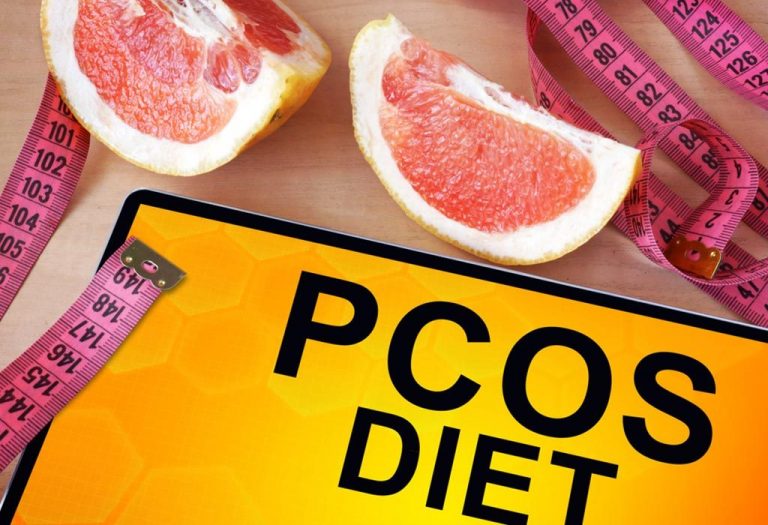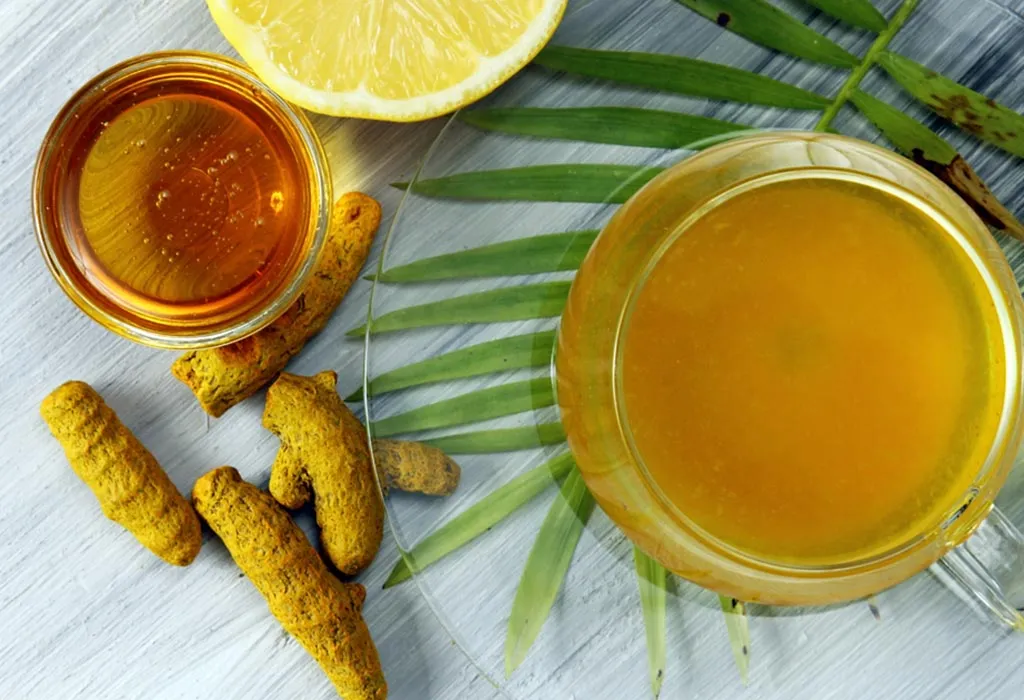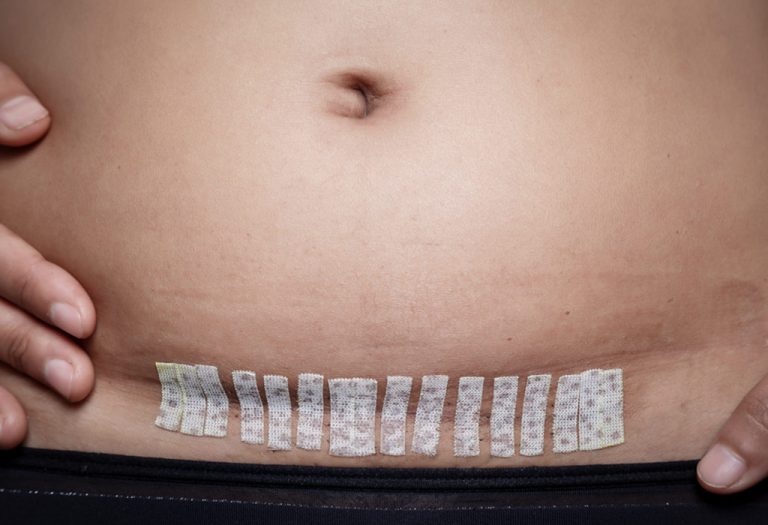PCOS Diet Plan to Get Pregnant

Polycystic Ovary Syndrome (PCOS) is a common disease among women who are in their reproductive phase. This disease occurs mainly due to hormonal imbalance, specifically due to high levels of androgen, which is a male hormone that develops its roots in women.
The major symptoms of PCOS include irregular menstrual cycles, the presence of excessive body hair and fat, pelvic pain, heavy bleeding during periods and, most importantly, difficulty in getting pregnant. PCOS can hinder fertility but don’t lose hope. There are a number of dietary options that can help you get pregnant despite having PCOS and bear a healthy baby. Check out this PCOS diet to get pregnant.
How PCOS Diet Works
PCOS can make it harder to get pregnant due to three main factors: chronic inflammation, poor insulin regulation, and high androgen levels. These issues are interconnected and can worsen each other. The most effective way to address these problems is through diet. Adjusting your eating habits can improve egg quality, support ovulation, and help your uterus better support implantation. By managing the hormone imbalances associated with PCOS through a proper diet, you increase your chances of a healthy pregnancy, reducing the risk of complications like gestational diabetes and preeclampsia and improving the likelihood of carrying your baby to full term.
Best PCOS Fertility Diet Tips to Help You Get Pregnant
Try to stick to the following diet plan tips to get pregnant if you are suffering from PCOS:
1. Prefer Eating Low Glycaemic Index Food
Food that contains high glycemic levels can spike your insulin levels. To avoid weight gain and other diseases like type-2 diabetes, it is important to eat food that has a low glycemic index. These are the good foods for PCOS to get pregnant, and the foods to avoid:
Foods to Avoid:
- White potatoes
- Rice
- Flour
- Doughnuts
- Watermelon
- Cornflakes
Foods to Eat:
- Soy milk
- Oatmeal
- Legumes
- Low-fat yoghurt
- Carrot juice
- Whole grain cereals
2. Avoid Starvation
Not eating food isn’t the solution to anything. One should eat regularly from time to time. However, avoid eating junk food or stale food. Eating healthy and fresh food ensures good health and wellness, which in turn boosts the process of losing excessive fat.
Healthy Foods to Eat:
- Lentils
- Fruits
- Green vegetables
3. Avoid Intake of Sugar
Whenever you consume sugar, you give way to increased blood sugar levels. Whether it’s chocolate, ice-cream, tea or cold drinks, you need to give up all of them. It is advisable to learn to relish the taste of food or drinks that have no added sugar to them.
Alternatives to Sugar:
- Stevia
- Honey
- Jaggery powder
4. Avoid Consuming Processed Food
If you want to get pregnant and keep PCOS in check, it is highly recommended to not eat processed food. These foods contain fats, hidden sugar, preservatives, and excessive sodium. Processed food, in turn, leads to inflammation. Instead, eat food that is freshly made and healthy.
5. Prefer Eating Anti-Inflammatory Foods
Insulin levels not only lead to weight gain and inflammation but also tiredness and weakness. Eating anti-inflammatory foods help reduce insulin levels.
Anti-Inflammatory Foods to Eat:
- Spinach
- Green tea
- Olives
- Beans and lentils
- Dark chocolate
- Coconut
- Turmeric
- Cinnamon
- Extra virgin Olive Oil
6. Consume Less of Dairy Products
It may sound weird, but yes, dairy products are not recommended for women suffering from PCOS. This is because dairy products contain Insulin-Growth-Factor 1. Though this factor aids in the growth of foetus, it is not good for women with PCOS.
It is pretty clear that giving up dairy products isn’t entirely possible, but just remember to have them in limited quantities. Butter is one dairy product that you can have within controlled limits, as it contains the right balance of fats and vitamins.
Dairy Alternatives You Can Consume:
- Almond milk
- Oat milk
- Coconut milk
- Rice milk
7. Consult Your Doctors for the Right Prescription of Drugs
There are several medicinal drugs available in the market that, in turn, have proven to be beneficial for treating PCOS. However, remember not to consume any of these drugs without consulting your gynaecologist.
- Clomid: This is prescribed as a fertility medicine that helps in stimulating ovulation process. Clomid contains an active chemical called clomiphene that makes the brain think that the oestrogen levels have reduced. When this happens, the production and secretion of FSH or follicle-stimulating hormone automatically starts. Further, the production of FSH boosts ovarian activity.
Sample PCOS Diet Plan for Getting Pregnant
A well-balanced diet is crucial for managing PCOS and improving fertility. By focusing on nutrient-dense foods, you can help regulate hormones, support ovulation, and increase your chances of conceiving. Here’s a sample PCOS diet chart to help you get started:
1. Breakfast
- Whole grain toast with avocado and a poached egg
- Greek yogurt with a handful of mixed berries and a sprinkle of chia seeds
- Smoothie made with spinach, banana, almond milk, and a scoop of protein powder
2. Mid-Morning Snack
- A small handful of almonds or walnuts
- Sliced cucumber with hummus
- Apple slices with a tablespoon of almond butter
3. Lunch
- Grilled chicken or tofu with quinoa, steamed vegetables, and a drizzle of olive oil
- Lentil soup with a side of mixed greens salad
- Whole grain wrap with turkey, avocado, lettuce, and tomato
4. Afternoon Snack
- A small serving of mixed nuts and seeds
- A boiled egg with a sprinkle of salt and pepper
- A cup of herbal tea with a piece of dark chocolate (70% cocoa or higher)
5. Evening Snack
- Carrot and celery sticks with guacamole
- A small bowl of Greek yogurt with flaxseeds
- A slice of whole-grain toast with cottage cheese
6. Dinner
- Baked salmon with roasted sweet potatoes and sautéed spinach
- Stir-fried tofu with brown rice and mixed vegetables
- Grilled chicken breast with a side of steamed broccoli and a quinoa salad
- This sample PCOS pregnant diet plan is designed to help manage PCOS symptoms while supporting your fertility journey.
Other Tips That Will Help With Fertility and PCOS
Managing PCOS and boosting fertility involves more than just a balanced diet. Incorporating other lifestyle changes and habits can further improve your chances of conceiving. Here are some additional tips to help with fertility and PCOS:
- Maintain a healthy weight through regular exercise and a balanced diet.
- Engage in regular physical activity, such as brisk walking, swimming, or yoga, to improve insulin sensitivity and reduce stress.
- Avoid processed foods and sugar to help stabilize blood sugar levels and reduce inflammation.
- Get enough sleep each night, aiming for 7-9 hours, as sleep impacts hormone regulation.
- Manage stress through relaxation techniques like meditation, deep breathing exercises, or journaling.
- Stay hydrated by drinking plenty of water throughout the day to support overall health and hormone balance.
- Consider taking supplements like inositol, omega-3 fatty acids, and vitamin D, after consulting with your healthcare provider.
- Avoid smoking and limit alcohol intake, as these can negatively impact fertility and exacerbate PCOS symptoms.
- Track your menstrual cycle to better understand your ovulation patterns and identify your most fertile days.
FAQs
1. Can a PCOS diet help improve egg quality?
Yes, a well-balanced PCOS diet rich in antioxidants, healthy fats, and low glycemic index foods can improve egg quality. Nutrients like omega-3 fatty acids, folate, and vitamin D play a crucial role in supporting healthy egg development and enhancing fertility.
2. How long should I follow a PCOS diet before expecting results in fertility?
Results can vary, but it’s generally recommended to follow a PCOS diet consistently for at least 3 to 6 months before expecting noticeable improvements in fertility. This time allows your body to adjust to the dietary changes and for hormone levels to stabilize.
3. Can a PCOS diet reduce the risk of miscarriage?
A well-managed PCOS diet can help reduce the risk of miscarriage by stabilizing blood sugar levels, reducing inflammation, and improving hormone balance. This creates a healthier environment for pregnancy and supports the development of the embryo.
This is the recommended PCOS diet to get pregnant naturally. Try to follow these tips and consult your doctor for a proper plan for a diet to get pregnant with PCOS. Another recommendation is exercise. Do not forget to exercise daily, as this is the most effective solution for staying fit and, in turn, controlling PCOS.
References/Resources:
1. Popovic. M, Sartorius. G, Christ-Crain. M; Chronic low-grade inflammation in polycystic ovary syndrome: is there a (patho)-physiological role for interleukin-1? (Seminars in Immunopathology); National Library of Medicine; https://pubmed.ncbi.nlm.nih.gov/31139895/; July 2019
2. González. F; Inflammation in Polycystic Ovary Syndrome: Underpinning of insulin resistance and ovarian dysfunction (Steroids); National Library of Medicine; https://www.ncbi.nlm.nih.gov/pmc/articles/PMC3309040/; December 20111
3. González. F, Nair. K, Daniels. J, Basal. E, Schimke. J; Hyperandrogenism sensitizes mononuclear cells to promote glucose-induced inflammation in lean reproductive-age women (American Journal of Physiology-Endocrinology and Metabolism); National Library of Medicine; https://www.ncbi.nlm.nih.gov/pmc/articles/PMC3287360/; November 2011
4. Wang. J, Wu. D, Guo. H, Li. M; Hyperandrogenemia and insulin resistance: The chief culprit of polycystic ovary syndrome (Life Sciences); National Library of Medicine; https://pubmed.ncbi.nlm.nih.gov/31604107/; November 2019
5. Xenou. M, Gourounti. K; Dietary Patterns and Polycystic Ovary Syndrome: a Systematic Review; National Library of Medicine; https://www.ncbi.nlm.nih.gov/pmc/articles/PMC8643565/; September 2021
6. Szczuko. M, Kikut. J, Szczuko,. U, Szydłowska. I, et al.; Nutrition Strategy and Life Style in Polycystic Ovary Syndrome—Narrative Review (Nutrients); National Library of Medicine; https://ncbi.nlm.nih.gov/pmc/articles/PMC8308732/; July 2021
7. Farshchi. H, Rane. A; Diet and nutrition in polycystic ovary syndrome (PCOS): Pointers for nutritional management (Journal of Obstetrics and Gynaecology); ResearchGate; https://www.researchgate.net/publication/5751025_Diet_and_nutrition_in_polycystic_ovary_syndrome_PCOS_Pointers_for_nutritional_management
Also Read:
Fertility Herbs to Get Pregnant
PCOS Treatment in Ayurveda
Yoga Poses for PCOS Treatment
Effective Tips for Getting Pregnant with PCOS
Was This Article Helpful?
Parenting is a huge responsibility, for you as a caregiver, but also for us as a parenting content platform. We understand that and take our responsibility of creating credible content seriously. FirstCry Parenting articles are written and published only after extensive research using factually sound references to deliver quality content that is accurate, validated by experts, and completely reliable. To understand how we go about creating content that is credible, read our editorial policy here.




































